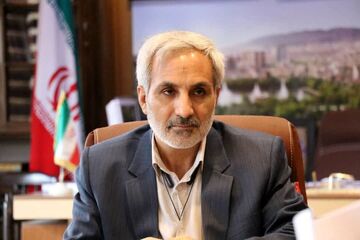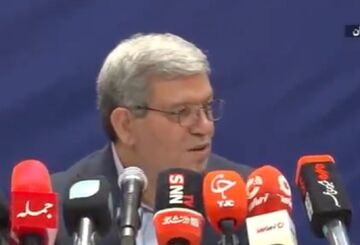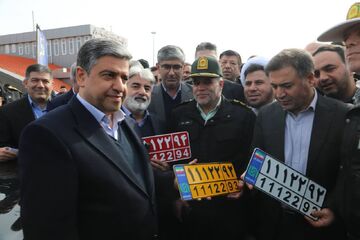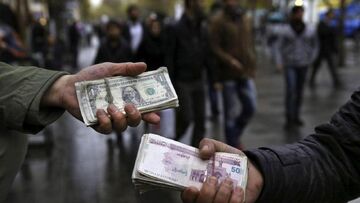TEHRAN(Bazaar) – William O. Beeman, Professor Emeritus of University of Minnesota, says Iran's conventional defense is thoroughly legal under U.N. rules, and trying to pre-negotiate this matter will kill the talks.
He adds if Saudi Arabia is involved in negotiations on JCPOA without the specific approval of Iran, the nuclear talks will be “dead on arrival.”
In an interview with the Bazaar, Beeman also says, “If there were suggestions that Saudi Arabia be involved, Israel would immediately demand to be involved as well, and then the talks would really blow up.”
Following is the text of the interview:
Bazaar: French President Emmanuel Macron has recently called for Saudi Arabia to be involved in nuclear talks with Iran. What is the reason for this position?
Beeman: Macron is not the only person who has made this suggestion. But it shows the highly unsettled nature of these negotiations. I am not sure why Macron did this. I think it was very naive and unwise. If Saudi Arabia is involved in these negotiations without the specific approval of Iran, the nuclear talks will be “dead on arrival.” There is no way to prevent Saudi Arabia from being consulted “behind the scenes” but any overt involvement will kill the talks. The JCPOA talks must be limited to the original signatories with no other interference. Let me add, if there were suggestions that Saudi Arabia be involved, Israel would immediately demand to be involved as well, and then the talks would really blow up.
Bazaar: The spokesman of the European Union has stated that the issue of Macron is his personal opinion and not the position of the European Union. What is the reason for the EU's open opposition to Macron?
Beeman: The EU has been dealing with this situation and the JCPOA for years--longer than Macron has been in office. They are very astute, and they know precisely what I have said above. Any extraneous involvement by other nations other than the original signatories will kill any negotiations.
Bazaar: While US Secretary of State Antony Blinken believes that the JCPOA is linked to Iran's missile and regional issues, Robert Malley, President Joe Biden's Special Representative for Iran, believes that the nuclear deal must first be concluded, and then raised other issues. He even said that the issue of Iran's missiles may not be resolved in the first Biden period, and believes that the issue of Iran's missiles is related to the balance of power in the region, which requires a regional solution. What is your assessment of these two positions, and which person in Biden's government is stronger?
Beeman: In my opinion, Malley is correct. Blinken is reflecting the political opinions raised during the Trump administration. I trust Malley's opinion. Blinken is a good, honest dealer, but he is wrong on this matter, in my opinion. Iran's conventional defense is thoroughly legal under U.N. rules, and trying to pre-negotiate this matter will kill the talks.
Bazaar: Iran foreign minister Mohammad Javad Zarif in his recent remarks has called for European mediation for the simultaneous implementation of the JCPOA by Iran and the United States. This solution seems to be operational. What is your assessment?
Beeman: I do like this solution. It avoids the situation where each side says to the other “you go first, and then we will follow.” At this point both the United States and Iran distrust each other. Having the actions operate simultaneously if that is possible is a way to avoid mistrust. There is an analogy in real-estate. When a person is selling a property, they ask that the buyer's payment be given to a third party. Only then after the deed to the property is signed and completed will the third party then convey the funds to the seller. This is known as “escrow,” and it is a very clever way to get around the trust issues.
Bazaar: Tony Blinken recently announced that if Iran continues to reduce its commitments, it will be able to build an atomic bomb in a few weeks. What is the reason for this comment?
Beeman: Sadly, Blinken is misinformed. He must be listening to Iran hawks. Iran might be able to enrich uranium to weapons grade in a short period of time, but then they would have to actually construct the bomb. Then they would have to test the bomb, and then they would have to create a delivery system for the bomb. None of the later stages beyond enriching the uranium exist. So Blinken is badly mistaken. And also, Iran doesn't have a nuclear weapons program, and it is prohibited from developing one through the Nuclear Non-Proliferation Treaty (NPT). U.S. officials have been saying that Iran is "one month" or "two months" away from building an atomic weapon since 1990. At this point it is a very silly political statement. I do wish that Secretary Blinken would stop using these silly, misinformed slogans and start working seriously toward restoring the JCPOA. When he says these things it only impedes negotiation progress. Blinken is a seasoned diplomat, and he is highly skilled. He should know better.
















نظر شما